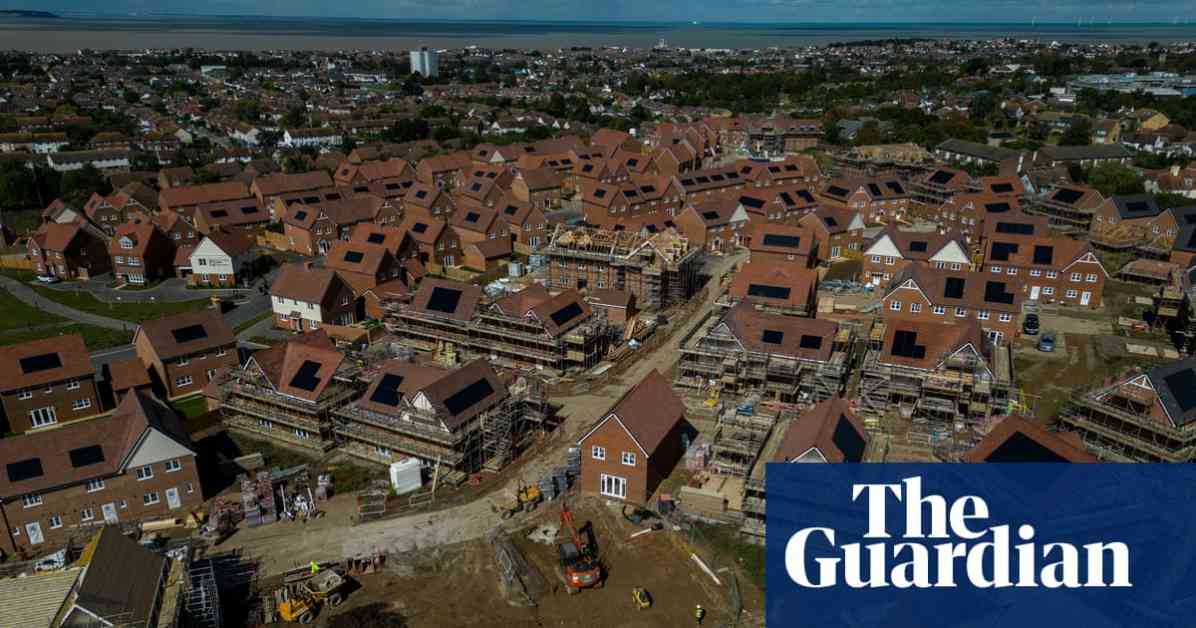According to a recent survey conducted by YouGov, it has been revealed that only 20% of UK voters can be classified as “hard nimbys,” meaning they are staunchly opposed to local housebuilding under almost any circumstances. This finding comes as a surprise to many, as it challenges the commonly held belief that a majority of voters are resistant to new housing developments in their communities.
The survey, which polled 12,000 people, used an MRP model to analyze voter attitudes towards housebuilding. The results showed that between 15% and 20% of British voters fall into the category of “hard nimbys,” while the majority are willing to support housing developments if certain conditions are met. This data has provided a boost to the government’s ambitious goal of building 1.5 million homes during this parliamentary term.
Jack Shaw, a senior adviser at Labour Together, emphasized the importance of principled support for housebuilding, stating that only a small proportion of voters are completely opposed to new developments. This insight reinforces the government’s argument for major planning reform, which aims to override the objections of a vocal minority that has hindered housebuilding projects for years.
The Prime Minister, Keir Starmer, has made new housebuilding a central focus of his growth agenda, pledging to revamp the planning system in order to meet the target of constructing 300,000 new homes annually. Despite facing criticism from some quarters, Starmer remains committed to kickstarting new developments, even if it means building on green belt land.
One of the key factors that influences local support for housebuilding is the provision of essential services such as GPs and health facilities. The survey found that this condition played a significant role in shaping attitudes towards new developments. Additionally, the poll revealed that a persuasive argument in favor of housing was the need to assist young people in stepping onto the property ladder, particularly resonating with voters who switched from the Conservatives to Labour in the last election.
Subheadings:
Age and Regional Variations in Nimbyism
The survey also shed light on the demographics of nimbyism, showing a strong correlation between age and opposition to housebuilding. Younger individuals, aged 18-24, were more open to the idea of new developments, with 83% expressing support for at least one argument in favor of housing. In contrast, only 52% of those aged 65 and older were swayed by pro-housing arguments.
Regional disparities were also evident in the survey results, with Scottish residents and Londoners displaying lower levels of nimbyism compared to those living in other parts of the south of England. Interestingly, individuals who voted leave in the 2016 EU referendum were found to be approximately twice as likely to oppose housebuilding as those who voted remain.
Despite the presence of a minority of “hard nimbys,” the survey highlighted that there are virtually no “hard yimbys” – individuals who are unconditionally supportive of local housebuilding. This suggests that proponents of new developments will need to work diligently to convince communities of the benefits of increased housing.
Christabel Cooper, the director of research at Labour Together, emphasized the nuanced nature of the housing debate, noting that there is a large majority in every constituency that is open to local housebuilding under specific circumstances. This insight underscores the importance of engaging with communities and addressing their concerns in order to garner support for new housing projects.
In conclusion, the survey findings challenge the prevailing narrative surrounding nimbyism in the UK. By highlighting the nuanced attitudes of voters towards housebuilding, the data provides valuable insights for policymakers and advocates of new developments. As the government moves forward with its ambitious housing targets, understanding and addressing the concerns of communities will be crucial in achieving widespread support for increased housing supply.












